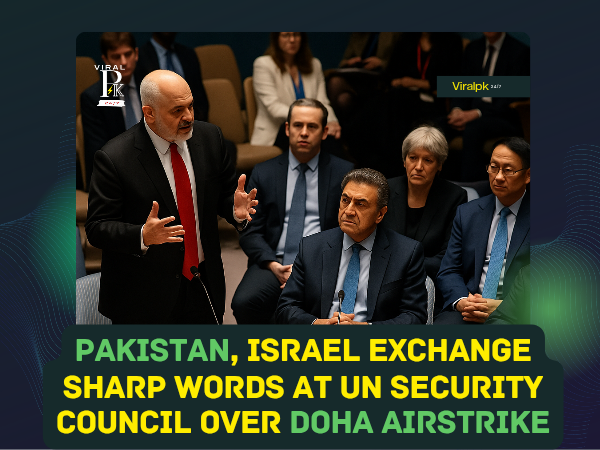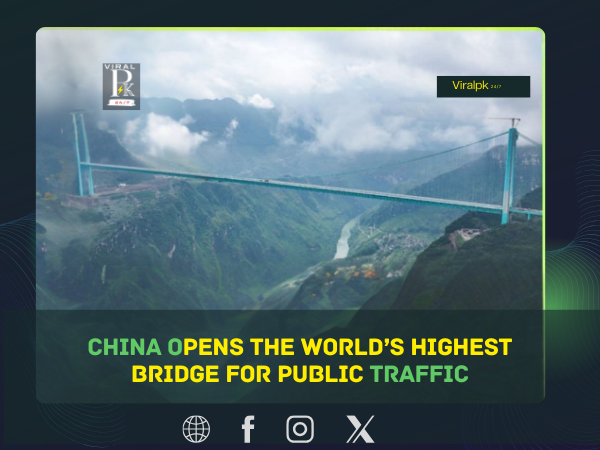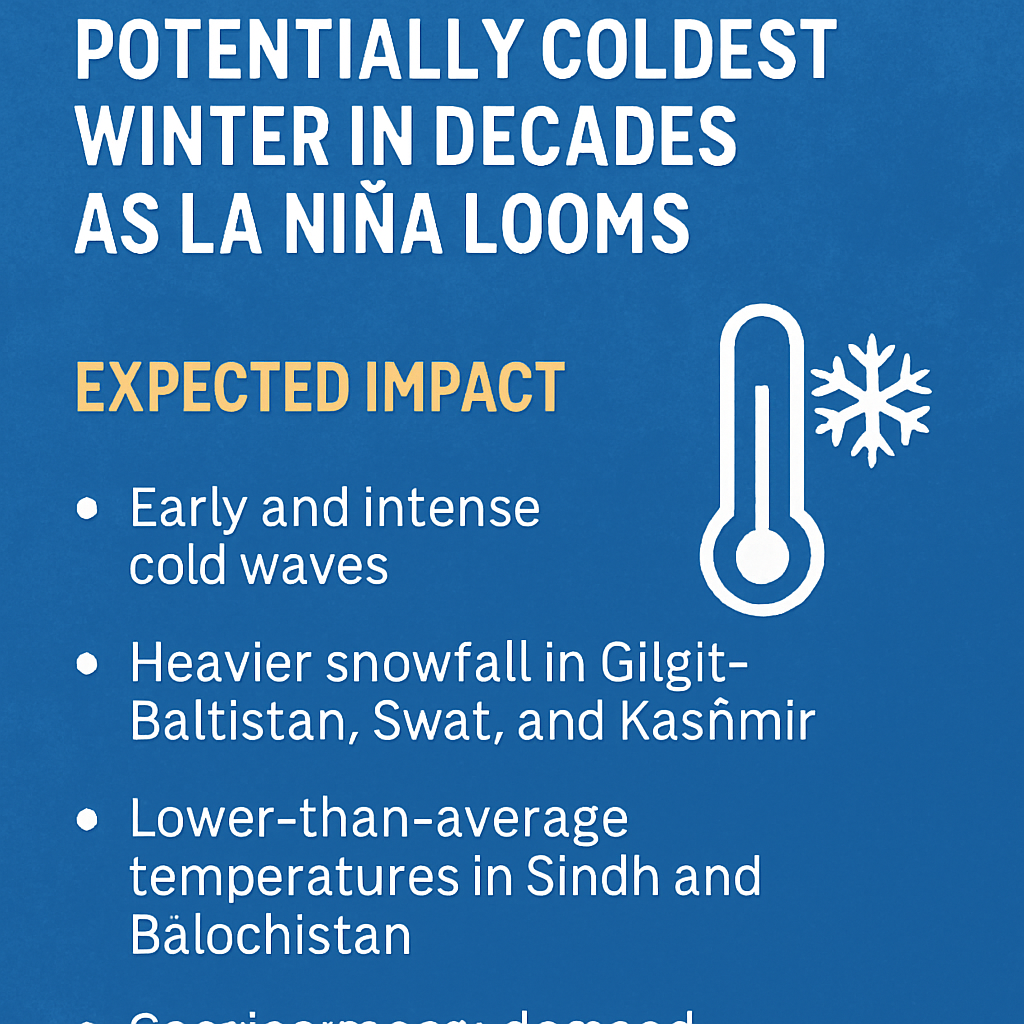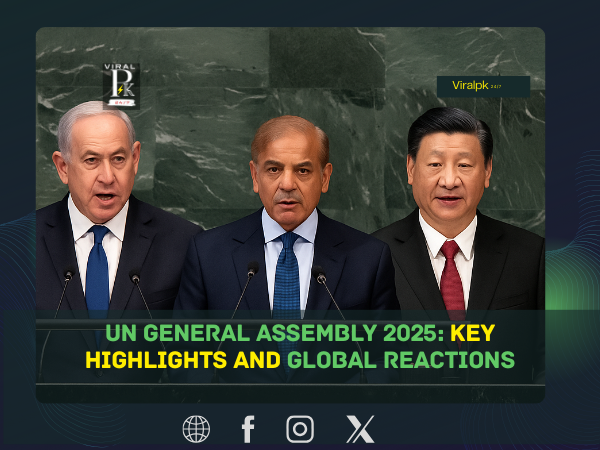Introduction
At an emergency session of the United Nations Security Council (UNSC), Pakistan and Israel engaged in a heated exchange following the Israeli airstrike on Doha, Qatar, which targeted Hamas leaders. The meeting was convened at the request of Pakistan, Algeria, and Somalia, with France and the United Kingdom also supporting the session.
Pakistan’s Strong Condemnation
Pakistan’s Permanent Representative to the UN, Ambassador Asim Iftikhar Ahmad, denounced the Israeli strike as an “illegal, unprovoked, and destabilizing act.”
- He asserted that the airstrike violated Qatar’s sovereignty and deliberately undermined delicate ceasefire negotiations related to the Gaza conflict.
- Citing Article 2(4) of the UN Charter, he emphasized that the attack constituted a clear breach of international law prohibiting the use of force against another state.
Ambassador Ahmad warned that such unilateral actions threaten peace efforts and increase civilian suffering, calling it “a direct assault on diplomacy.”
Israel’s Defense and Controversial Comparison
Israel’s envoy defended the strike by likening it to the 2011 U.S. operation in Pakistan that killed Osama bin Laden.
- The Israeli diplomat argued that the key question was not about violating foreign territory, but why Hamas leaders were being sheltered.
- He insisted that “Hamas enjoys no immunity.”
Pakistan’s delegation rejected this comparison as “unacceptable and absurd,” highlighting that Pakistan’s sacrifices were pivotal in defeating Al-Qaeda, and accusing Israel of diverting attention from its own unlawful actions.
Reactions from Other Nations
Qatar
Qatari Prime Minister Sheikh Mohammed bin Abdulrahman Al Thani condemned the attack, stating that residential compounds were hit, endangering negotiators and their families. He stressed that even during controversial talks—such as those with the Taliban in Doha—the U.S. never resorted to such measures.
China
China accused Israel of deliberately targeting Hamas negotiators, undermining ongoing U.S.-brokered ceasefire proposals.
United States
The U.S. delegation remarked that unilateral bombing was not in Washington’s or Israel’s interest, signaling disapproval of the strike.
France and the United Kingdom
- France labeled the airstrike a violation of international law.
- Britain warned that such actions jeopardize Israel’s long-term security.
Algeria and Somalia
Both countries strongly condemned the attack and urged the UNSC to take concrete action to prevent further escalations.
Broader Implications
The debate highlighted deep divisions within the Security Council regarding the interpretation of international law, state sovereignty, and accountability for state violence.
Pakistan used the platform to:
- Reaffirm its support for Qatar’s mediation efforts,
- Call for an end to Israel’s occupation of Palestinian territories, and
- Stress that lasting peace requires a comprehensive political solution to the Palestinian issue.
Conclusion
The UNSC session underscored a global divide over the Israel-Qatar incident and broader Middle East tensions. Pakistan’s legal and diplomatic arguments placed the focus on international law and the need to protect sovereign states from unilateral military actions.
While the Council reaffirmed the importance of mediation and a political solution for Gaza, the sharp exchange between Pakistan and Israel demonstrated how double standards and geopolitical rivalries continue to obstruct peace efforts.
📌 Disclaimer
This article is for informational purposes only and reflects details reported as of September 2025. The accompanying image is AI-generated and used for reference.
🔑 Keywords
UN Security Council Doha airstrike, Pakistan Israel UN clash, Qatar sovereignty attack, Gaza ceasefire negotiations, international law Article 2(4), Middle East tensions 2025, Israel Qatar conflict, Pakistan UN speech, UN emergency meeting Doha strike, global diplomacy crisis











